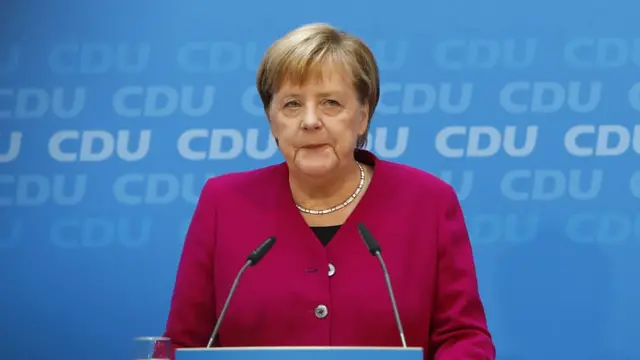The present generation of Europeans are lucky heirs to the wisdom and sacrifices of their elders who built the rules and institutions to manage the project of the economic and political union.
People and leaders of the six signatories of the 1957 Treaty of Rome — France, Germany, Italy, The Netherlands, Belgium and Luxembourg — deserve enormous credit for having led the process of postwar reconciliation and the continent’s recovery in peace and prosperity.
With perseverance and great competence, they have crowned the original customs union of the late 1950s with the single market, the common currency and a monetary union managed by a genuinely independent European Central Bank.
Those original six, and the rest of the 19 current euro area members, represent the hard core that is expected to lead the European integration.
The French and Dutch voters — and those in Italy’s Emilia-Romagna region last Sunday — have shown that European constituencies are strong enough to defend that project from xenophobes, populists and nationalists.
It is, therefore, a shame that the present euro area leaders are allowing virtual economic stagnation and high unemployment at a time when they have plenty of room to improve their people’s welfare.
So far, only the ECB has saved the day. Despite Germany’s wrong and self-serving protestations, the ECB has been able to keep the economy afloat while preserving price stability, the soundness of the financial system and facilitating fiscal consolidation in nearly all EU countries.
In spite of that, political leaders have been unable to come up with growth policies that would build on the ECB’s extraordinarily low credit costs.
What are those growth policies?
The monetary, fiscal and structural policies are the triad of a policy mix that is supposed to work in a coordinated manner to maximize demand, output and employment.
The sad truth is that the ECB’s monetary policy had a virtually solo run, with fiscal and, to a lesser extent, structural policies largely missing in action. And that’s not the way it should be.
The euro area’s roughly balanced books offer ample room to offset the private sector weakness with tax cuts and higher public spending. Indeed, the area’s public sector deficit in the first three quarters of last year wasonly 0.65% of GDP.
Unfortunately, that is a meaningless statistic, becauseGermany, with a budget surplus of 1.7% of GDPin the first nine months of last year, refuses the coordinated, or unified, fiscal policy. But Germany has no moral qualms about using the customs union to live off its European trade partners with asurplus of 137.4 billion euro, accounting for two-thirds of its total net exports during the January-November period of last year.
As a result, we have a situation whereGermany and 9 other euro area countries with balanced or surplus budgetswill not cut taxes or raise public spending to accelerate economic growth that would provide jobs for12.3 million unemployed, or 7.5% of the euro area’s labor force.
And that sad absurdity will now be pushed to another level as countries with high budget deficits and public debt are forced to cut taxes and raise public spending to provide jobs and incomes. The surplus runners like Germany and The Netherlands will then come in to step up exports while criticizing the spendthrift southerners.
The solution to this problem is nowhere in sight. Germany is opposed to French proposals of a common fiscal policy for fear of being robbed by fiscal miscreants.
There is nothing France can do. The country has entered a period of election campaigns that will end with a presidential contest in the spring of 2022.
Germany, for its part, has had many questions to answer to the world community in recent weeks, but the lackluster growth and high unemployment in the rest of Europe was not one of them.
That question, however, must be faced squarely. With Germany in mind, the ECB pointed out nearly eight years ago that euro area countries should not pursue “policies that can cause economic harm for others.”
More to the point, the German philosopher Juergen Habermas warned his country a few years ago that its European policy was like “dozing on the volcano.”
The Europeans are lucky, though. They have the ECB to do the job their politicians should be doing.
(CNBC)
 简体中文
简体中文

